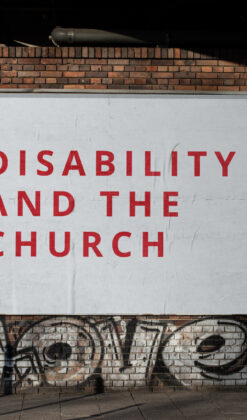I recently re-read Rob Bell’s best selling book, Love Wins, and was pleasantly shocked at how much of it I agree with. Well, I agree with about 80% of it. The problem is that the other 20% is wrong and misleading. In any case, I was struck by something he said as he was slaughtering our sacred evangelical cows in chapter one. Bell pointed out that even though Christians today emphasize having a “personal relationship with Jesus,” the phrase never occurs in the Bible. Never. Bell then raises a provocative question: How is it that the thing we find most important about our faith was never mentioned in the Bible?
It’s an interesting question, and in one sense he’s right. The phrase never actually occurs in the Bible. And when you follow the Apostles around in the New Testament, they never ask people to invite Jesus into their heart or to have a personal relationship with Jesus. Generally, they proclaim Jesus as the risen Lord and Savior and call people to lay down their lives and follow him. So, is the idea of having a “personal relationship with Jesus” unbiblical?
Yes and no. It all depends on what you mean by the word personal.
If by “personal” you mean private, then no, having a “private relationship with Jesus” isn’t in the Bible. (Neither is inviting Jesus into your heart, by the way.) Our faith in Jesus is public, not private; it’s communal, not individualistic.
And if by “personal” you mean individualistic, then no, having an “individualistic relationship with Jesus” isn’t in the Bible either. When we “get saved,” we are saved into a community of faith not just saved from our personal and private sins.
But if by “personal” we simply mean that a significant aspect of our salvation is coming into communion with our Creator through Jesus—then yeah, I think that’s pretty biblical.
In other words, while the phrase “personal relationship with Jesus” isn’t in the Bible, the concept is. In fact, it’s everywhere. From Genesis to Revelation, or from the Garden of Eden to the New Jerusalem, the idea that our Creator desires to dwell with, commune with, and relate with humanity in spite of our sin, in spite of our mess—well, that’s pretty much the main theme of Scripture. In one sense Bell is spot on. Having a private little religious experience with Jesus is not very biblical. But in another sense he’s dead wrong. Relating with our Creator—that’s a major plot in the story.
Let’s push this a bit further, though, because I still think there’s something to be gleaned from Bell’s point. Our relationship with Jesus is not private. It’s communal. That is, the center of gravity in our relationship with Jesus is in the church. Not in your heart, not on some mountaintop. But in the local gathering and global unity of Christ’s blood-bought bride. Consider Paul’s words in Ephesians 1:22-23:
And he put all things under his feet and gave him as head over all things to the church, which is his body, the fullness of him who fills all in all.
Did you get that? The fullness of God is not in your individual heart and it’s not on some mountain top away from civilization. It’s in the church—that messy gathering of broken, high-maintenance people that we “have” to go to every Sunday (and if you’re in the Midwest, every Wednesday as well). Paul goes on to call this church the temple of the Lord where “you also are being built together into a dwelling place for God by the Spirit” (Eph. 2:21). Again, Paul prays that “you may be filled with all the fullness of God” (Eph. 3:19), which he already said resides in the local body (1:23). This is why God gave us spiritual gifts (Eph. 4:11-12), so that the body of Christ would be built up, made mature, and become unified where the “fullness of Christ” would radiate (Eph. 4:12-13).
Fullness of Christ! It’s not in you. It’s not in me. It’s in us.
The New Testament bleeds community. Our faith—our personal relationship with Jesus—is inconceivable apart from the local community of believers. This is why Paul often refers to the church body (not our individual bodies) as the temple of the living God (1 Cor 3; 2 Cor 6). The church is where God’s presence dwells on earth. There is a sense in which God’s Spirit dwells in individual Christians, but individual Christians are lifeless apart from the church.
[I just discovered that Frank Viola has been blogging about this idea as well. Check out his recent post “Origin have ‘Personal Savior’ & the Idea of Having a Personal Relationship with Jesus'”]











